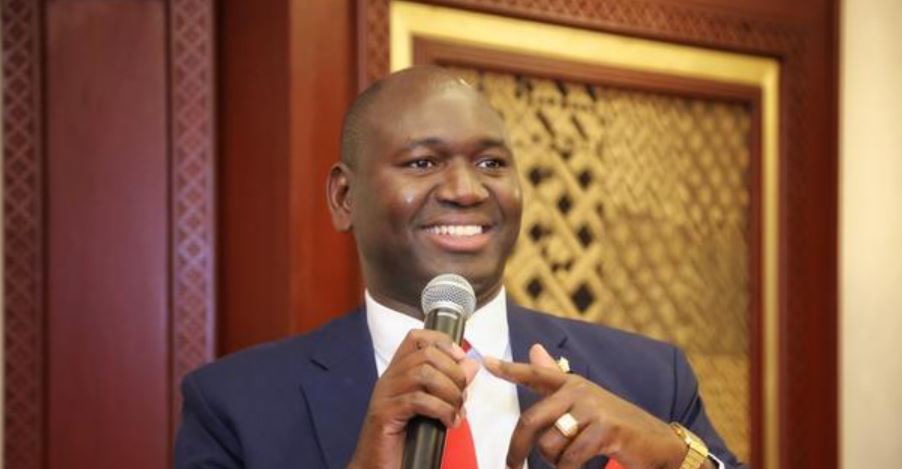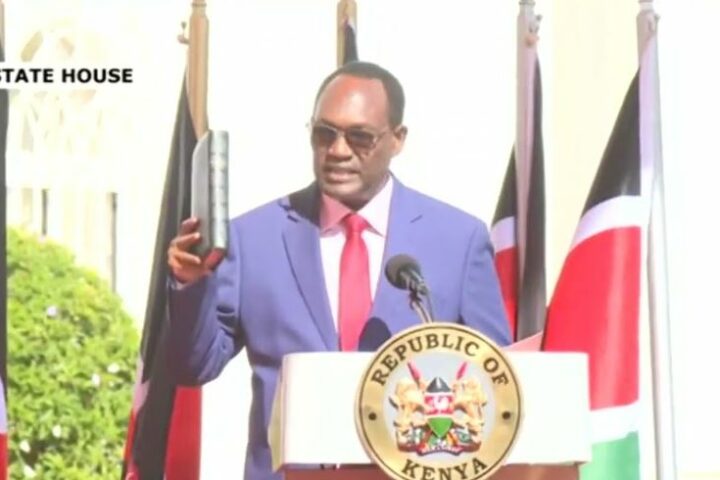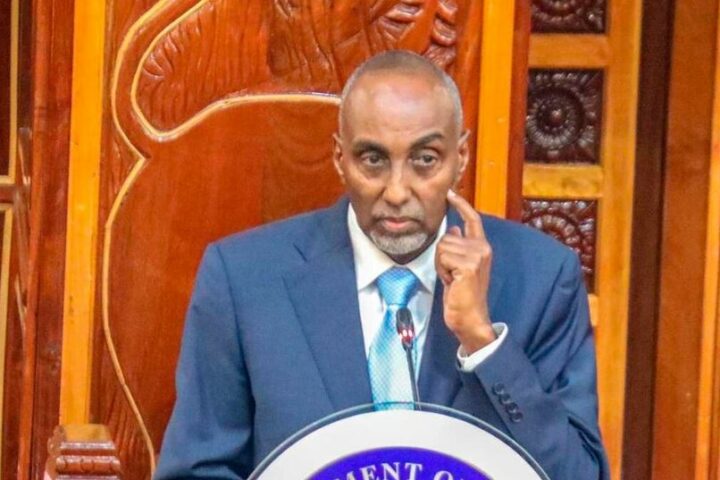
Langat, 34, is the director of Studio Culture Limited, an architectural consultancy firm based in Nairobi. He shares his career path with the Sunday Nation.
Tell us about your childhood and Family Life
I was born and raised in a typically rural village of Morit, Bomet County. I am the Fifth Born in a family of Nine. My parents are retired teachers and understood the value of a proper foundation for good quality education. This probably explains why they soon sent all of us to well-performing boarding schools, away from our village, for our primary school education.
I watched with a lot of admiration as my elder brothers and sisters excelled in the National examinations and securing admission to the then ‘prestigious’ courses in universities, to the point of becoming some sort of ‘celebrities’. I always knew that I had to double my efforts if at all I intended to match or even exceed their exploits.
The culture of expectation of excellence within our family taught me the value of hard work. These moments in my childhood might seem small but they have made hard work and discipline a significant part of who I am today.
Educational Background
I started school in Morit Primary school (Nursery to Class Four) between 1991 to 1993. I then transferred to Kericho Boys Boarding Primary School for the next two years. In 1997, I again transferred to Tengecha Boys Boarding Primary School still in Kericho County where I eventually sat for my Kenya Certificate of Primary Education (KCPE) in the year 1999.
I proceeded to Kapsabet Boys’ High School in Nandi County in 2000. In 2003, I sat for my Kenya Certificate of Secondary Education (KCSE) and attained a good enough grade to earn me a place in the Department of Architecture at the University of Nairobi from 2005 and graduated with a Bachelor of Architecture Degree in 2011. I later pursued a Masters in Construction Management in the same university eventually graduating in the year 2016.
Career journey
After completing my B.Arch. Degree, I secured my first employment as a graduate architect with a private architectural consultancy firm, then located in Parklands and run by my former professor.
Soon after, I moved to Kigali, Rwanda to work for one of the top architectural firms; GMK Architecture SARL, having emerged a successful candidate in a competitive recruitment process.
One year later, I relocated to Nairobi having got admission to pursue my postgraduate studies. While in Nairobi, I also got employed by the Mombasa Road Based Architectural Firm, Maestro Architects Limited, as an assistant Architect.
During my stint at Maestro Architects Limited, and under the guidance of Arch Charles Ogeto and Arch Kimathi Itaru, I sat and passed my professional examination and completed my postgraduate studies culminating in my promotion to the position of Architect.
In the year 2016, I made a decision to quit employment to establish my own practice, Studio Culture Limited. With our office based in Nairobi, we have since been commissioned to design and oversee several building projects all over the country ranging from residential, commercial, and factories. We look into diversifying our practice into Design and Build outfit with our eyes all set to establish our regional branch in Kericho Town by the end of this year.
What do you remember most about your career journey
Growing up in the Village, and having gone to primary and High school in Rural Counties, I always knew that the world was way bigger than my village! So when the opportunity to work in a big city out of Kenya (Kigali Rwanda) presented itself, I quickly jumped into it.
I knew in my heart that foreign travel for a young architect was vital for maintaining clarity and openness to design challenges. I believe it introduces an architect to solutions that navigate beyond local building practices, material choices, approach to culture, climate, and basic construction methods.
Besides, working alongside Architects and Engineers from different nationalities (Democratic Republic of Congo, Ireland, Mali, Rwanda, Uganda, and the United Kingdom) helped me hone my creative and innovative skills, due to the diverse workplace. The office was simply a melting pot of fresh new ideas!
How have you progressed over the years career-wise?
Throughout my professional career, I have always considered my main goal to be providing cutting-edge design solutions, which are always in harmony with the environment while looking to encourage social and economic growth of my country.
In the past, I would not always assert myself or aggressively pursue bold ideas in the building industry. But having honed my technical and managerial skills during my days in employment, I quickly moved on to establish my own practice, and in only five years, the firm has grown in leaps and bounds.
We have been able to effectively oversee building projects in Kenya well over Sh500 million in value year in year out. We have also created employment directly and indirectly for hundreds of Kenyans as well as internship opportunities to architecture students from our local institutions of higher learning. I now realise how these skills can not only contribute to the advancement of my career goals but contribute to the overall development of our country.
What are some of the key drivers of your growth? Lessons learnt and failures?
Relationship with clients – While good relationships lie at the heart of the success of all professional and personal ventures, architecture and construction industry is one that is fundamentally built on strong relationships. Accordingly, fostering these architect-client relationships has always been our priority as it has always led to business growth and success through consistent supply of business in the form of repeat clients and referrals.
Social Media Marketing – Facebook, Twitter, Linked in and other social media channels have been a powerful marketing tool that has ensured that apart from increased visibility in a highly competitive industry, we have been able to have a wider reach across the globe to current and prospective clients. It has also ensured quick and effective feedback to current and prospective clients. Being active on Facebook especially has not only increased loyalty but also generated new business leads.
Technology – Adoption of advanced technology such as Building Information Technology (BIM) to strengthen and support architectural design and management has revolutionised architecture and construction management of the projects I’ve been involved in by streamlining collaborations, reducing project costs, enhancing communication.
Teamwork – I’ve always learnt that getting a good team has been a key driver in the growth of any business by ensuring a synergistic way of working with each team member committed and working towards a shared goal. Through teamwork, we have been able to maximize the individual strengths of team members to bring out their best.
Who would you credit for your career growth and how did they influence your trajectory?
My former boss and mentor while working at Maestro Architects Limited, Architect Charles Ogeto has been useful in my career growth. Having worked closely with Him for a good number of years, I benefited from his immense experience in the industry.
He knew exactly the kind of challenges I faced in the course of my professional work and could prescribe solutions within the snap of a finger. He made hard decisions himself and I witnessed the impact of those decisions.
Many times, I use his experience to put my situation in perspective. Besides, he is such a fine Architect and I can always go back to Him for free advice!
Key decisions you might have taken along your career?
The gamble of quitting a well-paying job to be my own boss seemed to have paid off! It is a huge risk though.
What is your current role and scope?
I am currently an architect and recently diversified into construction and project management.
What would you tell your younger self?
Start building career skills as early as possible.
What would you advise the youth in Kenya and Africa Today?
Now that the global pandemic is with us, we don’t know what the future holds. But we do know that we live in changing, turbulent times. This means that your job description could be very different – or even irrelevant – in the years to come!
If your skillset falls ‘behind times’, you may struggle to find work. The youth of Kenya should also develop their skills, be tech-savvy, think globally, and build solid professional networks.
They should also keep clear and open career paths, build their resilience, and within organisations pursue roles that invest in people’s development. To the young architects, you are as good as your dreams.
Your future plans?
Start apprenticeship and mentorship programs.






